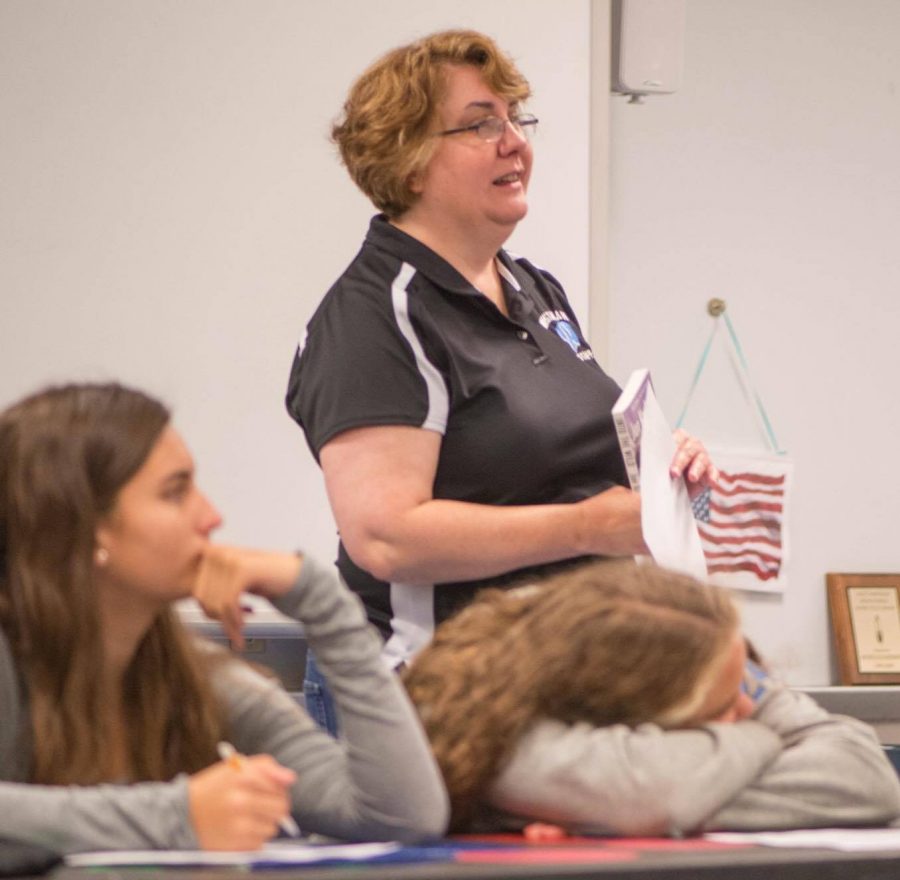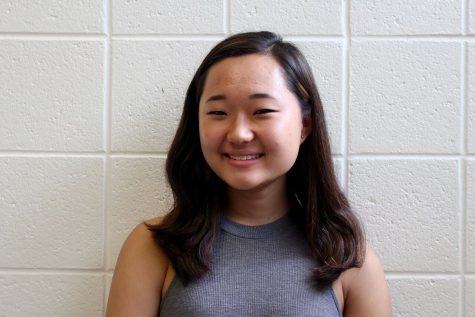Program seeks to reinvigorate Russian in Maryland schools
Russian teacher Michelle Quackenbush is part of a team of Maryland teachers who pioneered Bridge to Russian, hoping to encourage students all over the state to learn the language. Photo by Jefferson Luo
October 24, 2016
Moscow. Russian nesting dolls. A shirtless Putin riding a horse.
When most Americans think of Russia, this is what they picture. Its rich culture and language are often overlooked, however, and many students aren’t given the opportunity to learn Russian before secondary school.
Eager to change this, Michelle Quackenbush and other Russian teachers across Maryland came together to design an education proposal, in order to make the language more accessible. The result was the Bridge to Russian program, a plan that will enable interested middle and high school students in Maryland to connect with any available Russian teacher and begin independent study, even if their school doesn’t offer the class, Quackenbush said.
“We’re watching Russian be pushed out of public high schools and into private ones,” she said. “That’s been the trend for many years, and as a result, children in more affluent communities have access to it, but not everyone does.”
Bridge to Russian was one of 11 proposals chosen for further development and eventual implementation at a statewide Teach to Lead conference, an event which highlights education policies created by teachers. The Maryland State Department of Education sponsors the proposals from this event which could help the program garner more attention and possible funding from other sources.
An integral part of the Bridge to Russian proposal is making Russian available, as a high school credit, to middle school students. This would make it possible for them to begin learning the language earlier, an opportunity that senior Katie Carroll, a Russian 4 student, said she would have taken advantage of.
“I have taken Russian throughout high school, but I would have started in middle school, had I been given the option,” Carroll said. “I went to a private school and we could only choose from Spanish or French, but I wasn’t very interested in either.”
According to the United States National Security Education Program, individuals who speak Russian are highly sought after in the professional world. It qualifies as a critical language, meaning it is a non-Western European language essential to national security.
“Russian can also be referred to as a ‘strategic language,’” Quackenbush said. “Colleges are especially interested in students who study Russian in high school, and after you finish college, the career opportunities are numerous.”
Senior Jonathan Harris, who is also taking Russian 4, agreed with Quackenbush that the language is one of the most important in the world today.
“We have to continuously interact with Russia and other Slavic nations, so it’s important that we have people, especially working in foreign policy, who are well-versed in Russian,” Harris said. “Our Russian program is one of the best and one of the only in the state, so that’s always an option for me, to go to one of the colleges that have contacted Ms. Quackenbush about scholarship opportunities.”
Quackenbush said that the next step for Bridge to Russian is collecting demographic data about Russian teachers and interested students in Maryland. Important details, including how the students and teachers will communicate, are contingent upon the location of teachers and students in relation to each other.
“It’s all about connecting students who are interested in learning with teachers who are qualified to teach,” Quackenbush said. “There has definitely been statewide interest, so our philosophy is that if we build a program to facilitate it, the students will come.”









